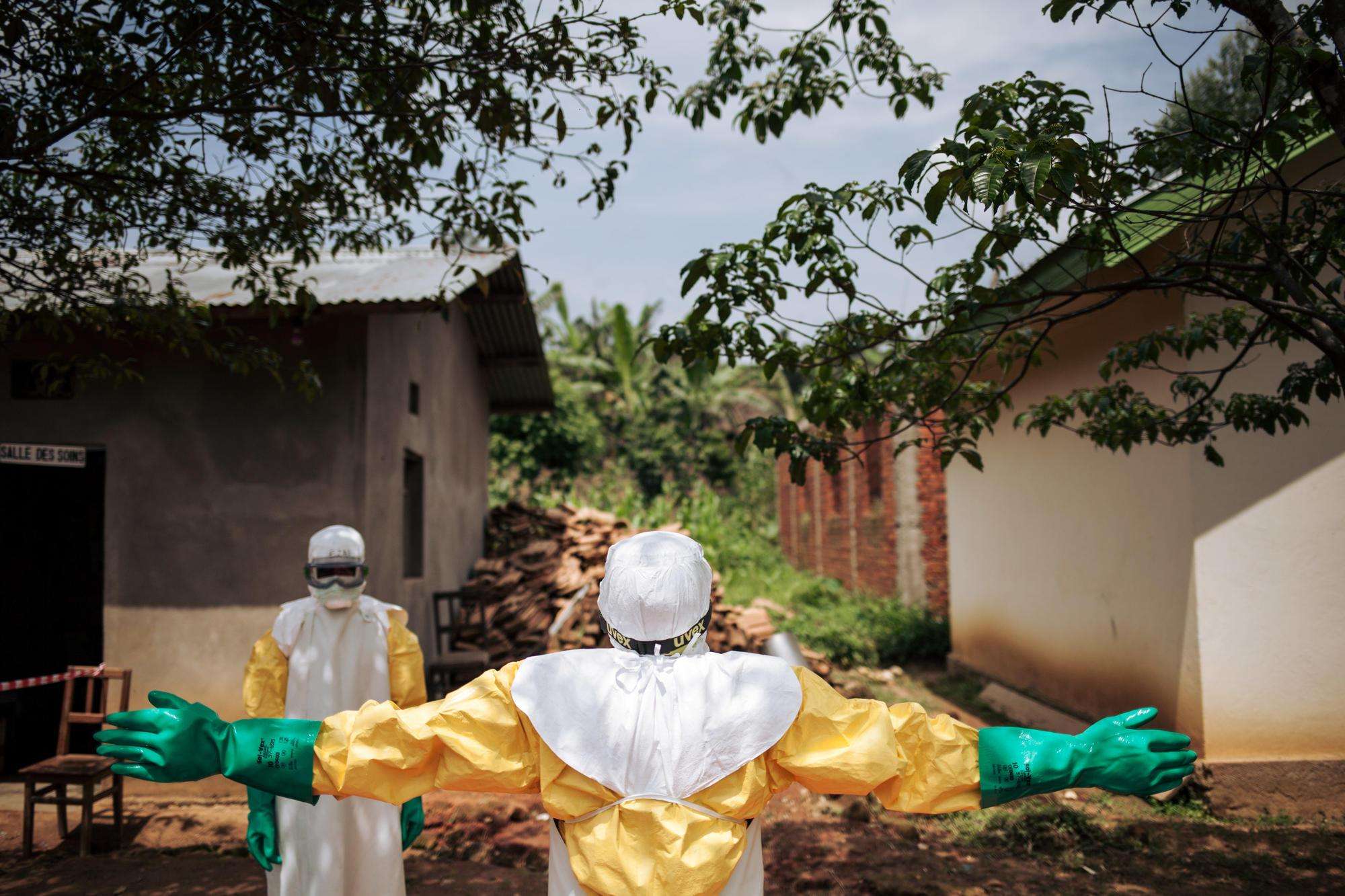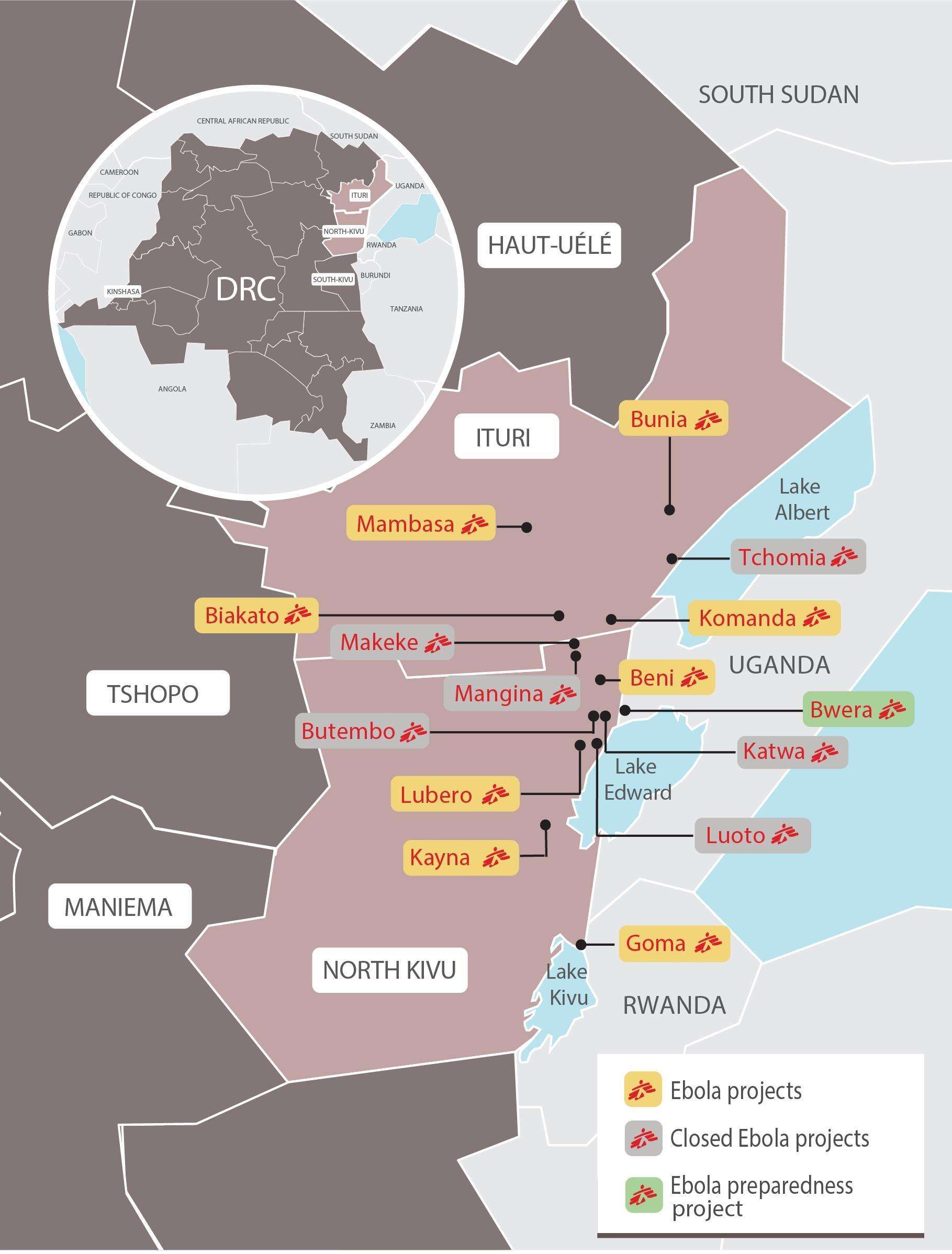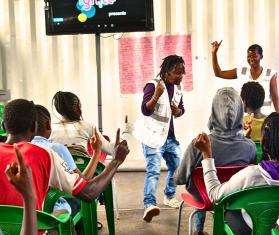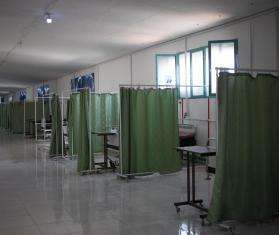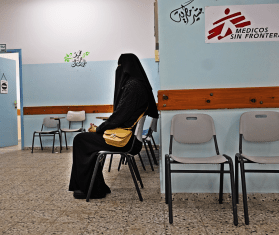The current Ebola outbreak in Democratic Republic of Congo (DRC) is the worst on record in the country and the second-largest epidemic of the disease recorded anywhere. Almost a year after the declaration of this Ebola outbreak, more than 1,900 people have died from the virus.
The Ebola crisis in DRC is not under control—despite a massive international response, promising new vaccines and therapeutic drugs, and improvements in the medical management of the disease. Doctors Without Borders/Médecins Sans Frontières (MSF) has repeatedly stressed that the spread of this deadly virus cannot be stopped without building greater trust between those involved in the Ebola response and the local communities directly affected. The majority of Ebola cases have been reported in North Kivu and Ituri provinces, however new cases continue to emerge in other areas, indicating that the epidemic is yet to be contained.
Ebola situation report as of August 18, 2019
|
Total cases: 2,888 cases Total deaths: 1,938 cases |
*Data reported by the DRC Ministry of Health and published by the World Health Organization. "Probable" deaths refer to deaths that were linked to confirmed Ebola cases but not tested before burial.
This is the tenth outbreak of Ebola in DRC in 40 years and by far the country's largest ever documented. It is also the second largest Ebola epidemic on record, behind the West Africa outbreak of 2014–2016.
The Ministry of Health officially declared the latest outbreak of Ebola virus disease in North Kivu on August 1, 2018, but the outbreak likely began months earlier. In the first eight months (from August 2018 to March 2019) more than 1,000 confirmed and probable cases were reported in the affected region. However, from April to June 2019, that number doubled, with an additional 1,000 new cases of Ebola reported in this short period alone. Since early June, the number of cases per week has remained high, averaging between 75 and 100.
On July 17, the World Health Organization declared the Ebola outbreak in DRC to be a public health emergency of international concern. MSF hopes that greater international attention will improve the response to the epidemic and lead to a revised strategy that is more patient-focused and community-centered.
Ebola response
Doctors Without Borders/Médecins Sans Frontières (MSF) is an active player in the Ebola response. We withdrew from our Ebola treatment centers (ETCs) in the North Kivu cities of Butembo and Katwa—at the epicenter of the outbreak—following separate attacks on the facilities earlier this year. However, we are currently managing an ETC in Bunia in Ituri province in collaboration with the Ministry of Health. MSF is also treating patients with confirmed and suspected cases of Ebola in a new ETC in Munigi, Nyiragongo health zone, that is currently scaling up to its full 72-bed capacity. MSF has been present in Goma, North Kivu province, for Ebola preparedness for more than eight months now, reinforcing the disease surveillance system and ensuring there is adequate capacity to manage suspected and confirmed cases.
We are also helping existing health care facilities in North Kivu and Ituri provinces to prepare for and handle potential Ebola cases. And we manage transit centers where patients with suspected Ebola are tested and sent to ETCs if they test positive.
Additionally, MSF is working to implement and strengthen disease surveillance and infection prevention and control activities in the region, as well as working with local health facilities to make sure they have the capacity and equipment to isolate individuals with suspected cases of Ebola.
Our main priority is to work closely with the affected communities to identify their needs and ensure that access to essential health care services is guaranteed for patients suffering from all major diseases affecting people in the area, such as malaria and diarrheal diseases. MSF is helping reinforce local health systems to improve capacity to respond to the various health needs. For example, we are currently responding to four simultaneous crises in Ituri province: an Ebola epidemic, a massive measles outbreak, the annual seasonal malaria peak, and forced displacement due to violence.
MSF also aims to integrate its Ebola response activities into the existing health care system to ensure such services are close to those who need them. Integrating testing for suspected cases into the health care centers that people know and trust could encourage them to promptly seek treatment in case of Ebola-like symptoms, thereby improving the acceptance of Ebola care and reducing the number of people dying at home.
As of August 2019, MSF has more than 530 staff deployed in DRC for the Ebola emergency.
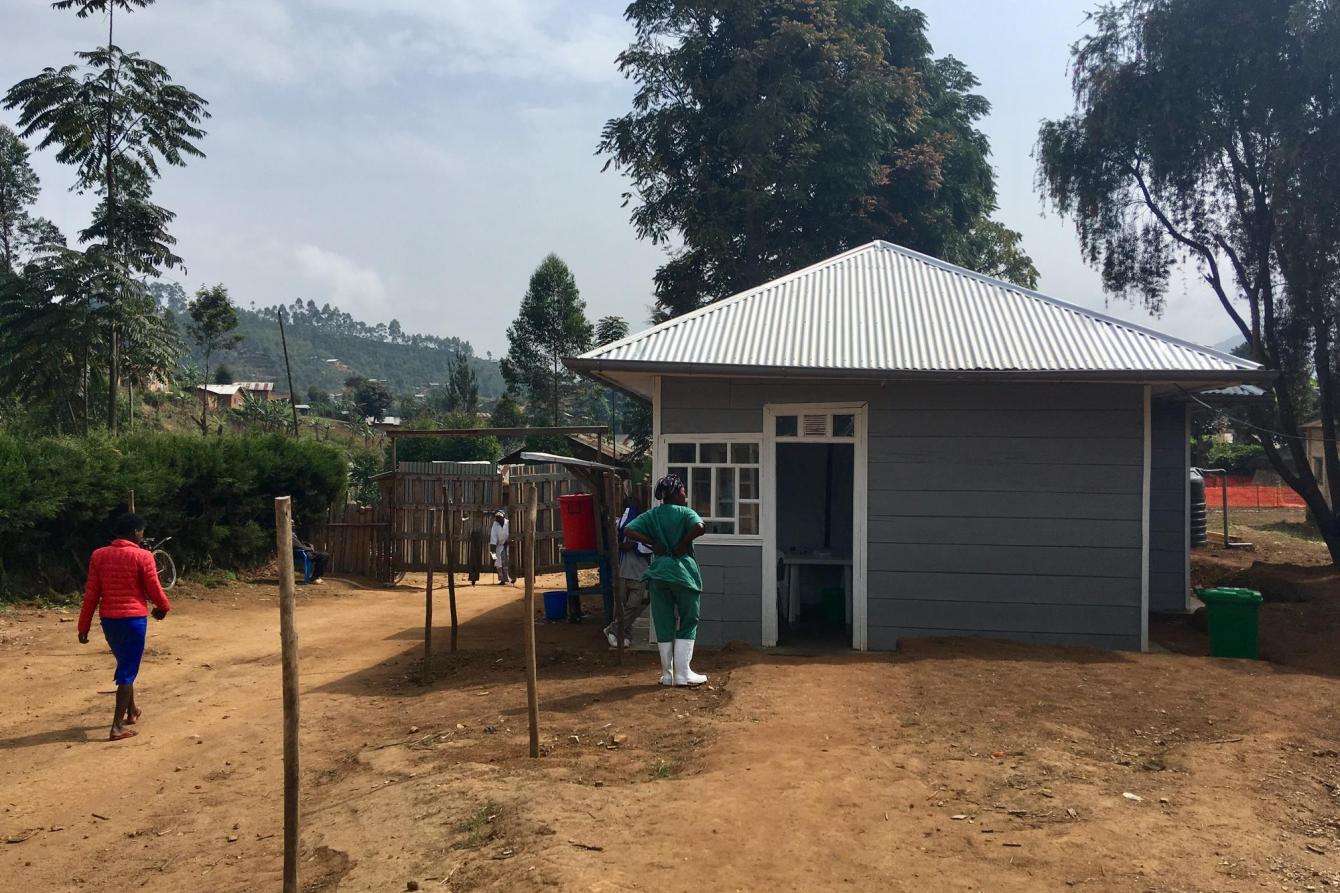
Local context
The epicenter of the outbreak is in North Kivu province, a densely populated area in northeastern DRC with approximately seven million people. Despite the challenges of rough terrain and poor roads, people in this region are highly mobile. North Kivu shares a border with Uganda to the east and sees a lot of trade, as well as human trafficking and “irregular” crossings. Some communities live on both sides of the border and cross back and forth frequently to visit relatives or trade goods.
North Kivu has been an area of conflict for more than 25 years, with more than 100 armed groups estimated to be active. Criminal activity, such as kidnapping, is relatively common, and skirmishes between armed groups occur regularly. Widespread violence has uprooted people and made some areas in the region quite difficult to access.
As of late July, 25 health zones out of a total 47 in the provinces of North Kivu and Ituri have been affected by Ebola. Of these 25, 18 are considered active transmission zones, meaning that they have reported new confirmed cases in the last 21 days. Two new health zones in the affected region, Ariwara and Goma, were recently added to the list. While the number of new cases is decreasing in former hotspots such as Butembo, Katwa, and Mandima health zones, there has been an increase in new cases in Beni, and a steadily high incidence of new cases in Mabalako health zone.
On June 11, Uganda announced that three people from a single family had been diagnosed with Ebola, the first cross-border cases since the outbreak began. Uganda has not recorded any further cases.
There have been three cases of Ebola confirmed in Goma—the capital of North Kivu and a city of two million people located on the Rwandan border. Following the first confirmed case identified in Goma, the World Health Organization on July 17 declared the Ebola outbreak in DRC to be a public health emergency of international concern.
Community engagement
All actors involved in the Ebola response, including MSF, have failed to build trust within the local community. Widespread mistrust, as well as violent attacks against the Ebola response, are hampering efforts to control the epidemic. People are not seeking care in ETCs, resulting in an increased likelihood that the virus could spread in other health facilities that aren’t equipped with proper infection control procedures and equipment.
Targeted violence against those working on the Ebola response disrupt crucial activities like vaccination, contact tracing, community health promotion, and safe burials, in addition to discouraging people from coming to ETCs when they fall ill and present Ebola-like symptoms.
In order to stop the outbreak, we have to listen to the needs of communities, restore their power of choice when it comes to managing their health, and involve them in every aspect of the response. MSF teams are present in local health structures, where we offer general health care services and work to increase access to health care for all patients. We are also implementing Ebola-related activities such as managing transit units where people are tested for the disease and strengthening IPC activities in health facilities.
Epidemiological concerns
MSF is extremely concerned about the lack of visibility on the actual epidemiological situation. Many people have died of Ebola in their communities before they could be identified, diagnosed, and admitted for treatment of the disease. This high number of community deaths is a strong indicator that the outbreak is not under control.
Additionally, the fact that many new confirmed cases have not been identified and followed as contacts is highly worrisome. Since the beginning of the epidemic, only around half of the new reported Ebola cases have been identified as contacts of previous confirmed cases before falling ill and seeking treatment or dying without receiving proper Ebola care. These figures highlight the many challenges related to the identification and close follow-up with contacts of people infected with Ebola (both confirmed and probable cases), which would allow people who have the disease to receive adequate and timely care and reduce the risk of transmission by facilitating the vaccination of those contacts.
